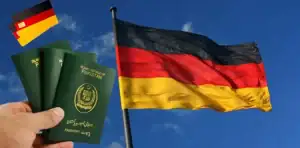BERLIN – Members of the European Union have agreed to explore the option to tighten rules against visa-free travel regimes with third countries.
The EU member states’ ambassadors (Coreper) have agreed on a draft regulation that updates a mechanism that allows the EU to suspend visa-free travel for third countries whose nationals are exempt from the visa obligation when travelling to the Schengen area.
if adopted, this new measure will boost the EU’s toolbox to counter situations when visa-free travel is being abused or works against the interests of the bloc.
In a press release issued on Wednesday, the council elaborated that under the updated mechanism, the EU will be given the following new grounds to suspend the visa-free regime:
- Lack of alignment of a visa-free third country with the EU’s visa policy, in cases where this may lead to increased arrivals to the EU e.g. because of this country’s geographical proximity to the EU
- The operation of an investor citizenship scheme, whereby citizenship is granted without any genuine link to the third country concerned, in exchange for pre-determined payments or investments
- Hybrid threats and deficiencies in document security legislation or procedures
‘Member states have decided to also include the possibility to suspend the visa-free regime in case of a significant and abrupt deterioration in the EU’s external relations with a third country, in particular when it relates to human rights and fundamental freedoms,’ the press release stated.
As per the official version, the following existing grounds remain in place:
- A substantial increase in the number of third-country nationals who are refused entry or found overstaying
- A substantial increase in the number of unfounded asylum applications from the nationals of a third country for which the recognition rate is low
- A decrease in cooperation with the EU on readmission of people who have been asked to leave the EU territory and a risk or imminent threat to public policy or internal security (e.g. because of an increase in criminal offences).
Another ground that already forms part of the current mechanism i.e. the failure to meet the visa liberalization benchmarks by partners that have been through a visa liberalization dialogue to become visa-free is now defined more clearly in the new regulation.
As far as the duration of the temporary suspension of visa exception is concerned, it has been increased from 9 to 12 months and can be extended by another 24 months (instead of 18 months under the current system). During this suspension phase, the European Commission will engage in a dialogue with the third country to take steps to address the circumstances that led to the suspension.
‘If no solution is found to remedy the situation, the EU can decide to permanently revoke the visa-free travel regime,’ the press release read.
At present, the EU has established visa-free agreements with 61 third countries. Citizens of these nations can travel to the Schengen area without a visa for short stays of up to 90 days within a 180-day period.
It is noteworthy that the EU has implemented stricter regulations concerning countries providing services related to the Golden Visa scheme or residency obtained through investment – a visible indication of the fact that the EU discourages such schemes.














